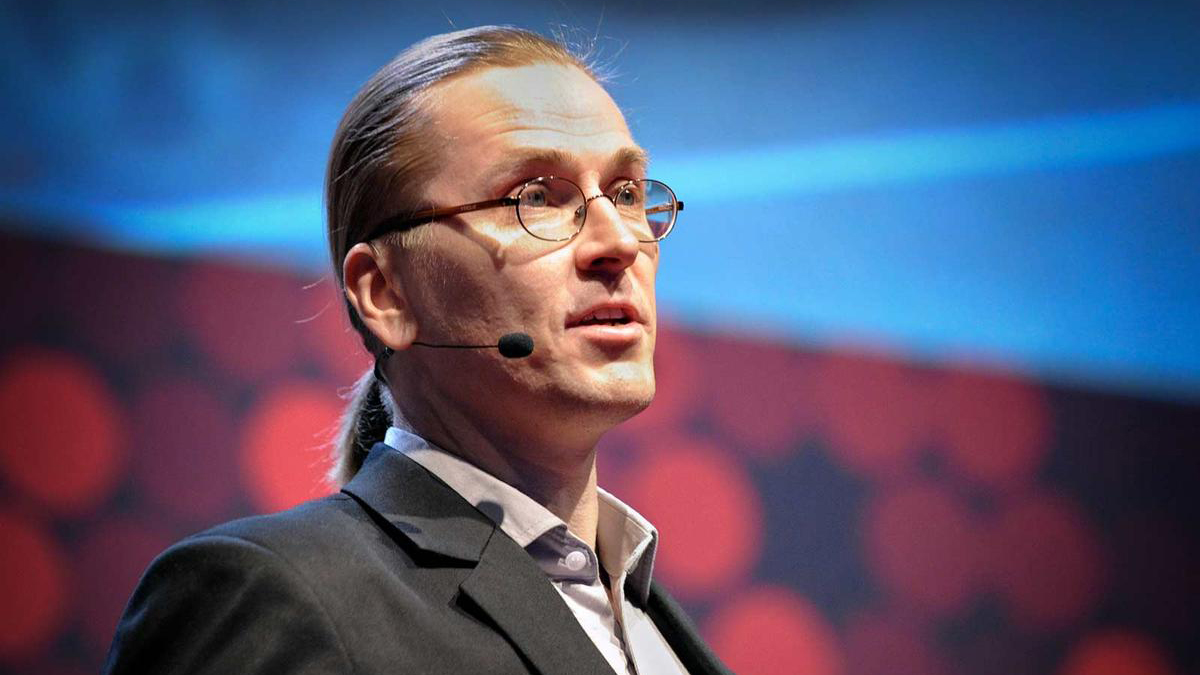These are the most influential people in cybersecurity right now
Out in the limelight or in the shadow, these are the characters that make things flow
Cybersecurity and information security (InfoSec) are both growing fields that anyone with an inherent interest in computing, maths or science should think about aiming for – there's a decent living to be made.
Cybersecurity – also known as computer security or IT security – involves safeguarding computers and servers from unwanted tampering. That includes, oftentimes, theft, a commonly occuring threat in the world of technology. And as the threats faced by businesses multiply and mutate, the demand for cybersecurity experts has gone up.
But, like in any field, unless you have a role model to look up to it’s difficult to work up the motivation to get out of bed in the morning, let alone fulfil your career goals. So we'll introduce you to some of the most influential people working in cyber security right now.
Eugene Kaspersky

In terms of popularity, Kaspersky Lab has become the new Norton in the last 10 years or so. The company was founded in 1997 by Russian cybersecurity guru Eugene Kaspersky, although he didn’t become CEO until 2007.
Kaspersky became interested in cybersecurity when his computer was infected by the Cascade virus in 1989. As he was working for Russia's Ministry of Defense at the time he had the resources available to him to develop a program that would remove the malicious software from his PC, and after that he started to work on his first antivirus product full-time.
In the years since, Eugene Kaspersky has influenced security experts and governments alike, warning against the threats of cyber-warfare and cyber-terrorism. He also travels to 20 to 30 countries a year promoting his company's antivirus products.
Are you a pro? Subscribe to our newsletter
Sign up to the TechRadar Pro newsletter to get all the top news, opinion, features and guidance your business needs to succeed!
Window Snyder

The former Chief Security ‘Something or Other’ at Mozilla, Window Snyder is known for co-authoring the book Threat Modeling. In it, she and Microsoft Software Security Engineer Frank Swidersk, describe the strategy for identifying and eliminating system security risks.
Snyder was the former security lead on Windows XP Service Pack 2 in addition to Windows Server 2003, and she’s credited as the creator of the Microsoft BlueHat Security Conference.
These days, Snyder spends her time fleshing out the security of Fastly, a cloud-based content delivery network (CDN) that provides its services to a wide variety of high-profile clients including the New York Times, Spotify, Reddit, Airbnb, and TicketMaster, so there’s a lot riding on her company having robust security.
Mikko Hyppönen

“Whenever an appliance is described as being smart, it’s vulnerable.” That’s Hyppönen’s Law, which was tweeted by the Chief Research Officer at F-Secure, Mikko Hyppönen, in December 2016. In other words, while adding ‘internet of things’ technology to an existing utility might make it more convenient to use in some ways, it also puts users at risk of malicious attacks.
Hyppönen garnered a lot of attention for that tweet, although if you’d been paying attention you would have noticed that he'd been in the spotlight since 2007, when he was named one of the 50 most important people by PC World Magazine. In addition to providing his expertise to numerous governments on the subject of cyber crime, Hyppönen is also a reserve officer in the Finnish Army.
Hyppönen also coined the term ‘Cybercrime Unicorn’ in reference to cybercrime organizations worth over a billion US dollars. It’s no wonder, then, that he’s written for major news outlets including The New York Times, CNN and Scientific American.
Katie Moussouris

Perhaps best known for founding the Microsoft Vulnerability Research program (MSVR), revealed at BlackHat in 2008, Katie Moussouris got her start at Symantec four years earlier. Since then she’s been described as one of the '10 Women in Information Security That Everyone Should Know', among other accolades.
Moussouris has also written for a number of publications, mostly about the world of hacking and 'bug bounty' programs, whereby hackers can receive recognition and compensation from tech companies for identifying reporting bugs and vulnerabilities. She created the bug bounty program at Microsoft, and helped with the establishment of a similar program for the US Department of Defense.
In 2016, Moussouris founded a security startup called Luta Security, with the goal of advising organizations and governments on policy, vulnerability coordination and bug bounties by helping them “realize the benefits of working with hackers”.
Jennifer Leggio

The Chief Marketing Officer at business risk intelligence firm Flashpoint and Security Writer for ZDNet, Jennifer Leggio has worked in cybersecurity for 17 years. At Flashpoint, she’s been responsible for securing relationships with other companies to bolster their cybersecurity presence, while at ZDNet she’s raised awareness of issues such as disclosure and equality in cybersecurity.
Leggio also co-manages the Security Bloggers Network, and has taken the stage to speak about her passions at New Media Expo, Twitter Conference, Inbound Marketing Summit, Gartner Security Summit and RSA Conference.
Considering her dream job as a kid was to be a ‘Mafia Princess’, according to her LinkedIn profile, we’d say Leggio has done pretty well for herself as one of the most influential people in cybersecurity at the moment.
Security Week by TechRadar Pro is brought to you in association with CyberGhost.
